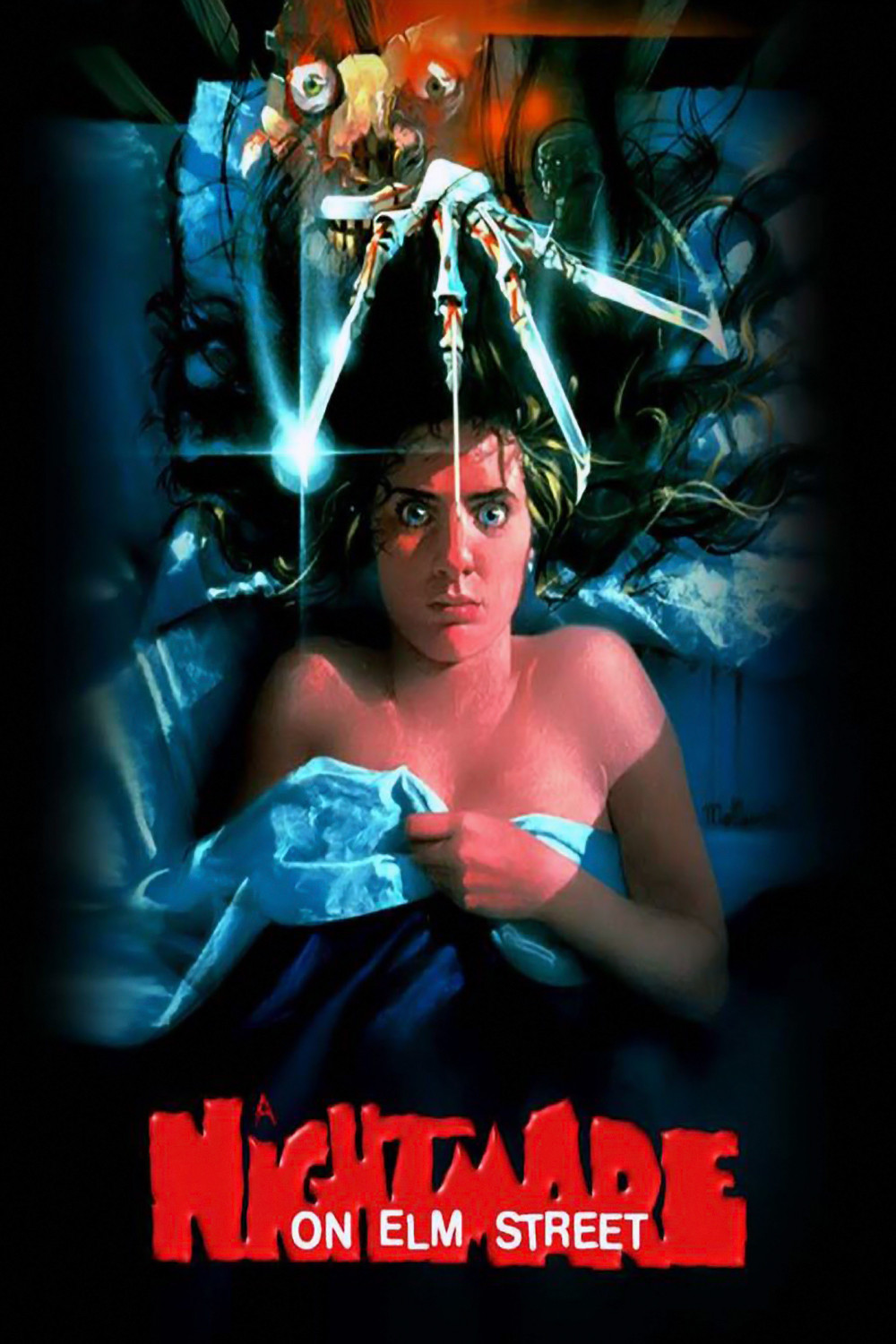A Nightmare on Elm Street
Wes Craven's 1984 classic holds a very similar place in the horror hall of fame to my last reviewed film, Halloween. Craven's creation is equally as terrifying and nightmarish, with the killer Freddy Krueger being a highly disturbing figure whose inescapable reach increasingly takes ahold of the viewer in a way few characters do.
 The central idea is that Krueger manifests himself in the dreams of teens Tina, Nancy, Rod and Glen (which happens to be young Johnny Depp's first role). They soon become aware of the connection between their dreams and fear falling asleep, as Krueger draws further and further out of their dreams and into the real world itself. The idea allows for unsettling moments where it is not certain whether scenes are taking place in their dreams or not.
The central idea is that Krueger manifests himself in the dreams of teens Tina, Nancy, Rod and Glen (which happens to be young Johnny Depp's first role). They soon become aware of the connection between their dreams and fear falling asleep, as Krueger draws further and further out of their dreams and into the real world itself. The idea allows for unsettling moments where it is not certain whether scenes are taking place in their dreams or not.
The blurred line between real and imaginary is well explored by Craven, with the dubious parents and police grounding their suspicions firmly in reality while the teenagers fear the supernatural Freddie ever more. Robert Englund as Kreuger completely steals the film with his menacing rasp and leering mannerisms, while his scarred "face" and Edward-Scissorhands-turned-killer razor blade tipped gloves ensure that we won't be sleeping for several weeks; as Wes no doubt intended.
As films such as Halloween and The Shining made clear, an effective soundtrack is a pivotal part of the genre and A Nightmare on Elm Street ticks all the boxes here, with a chillingly simplistic motif that adds ever more fear with its inclusion in scenes alongside the nursery rhymes that tell of Freddy's imminent appearance ("1,2, Freddy's coming for you"). It is continually built upon every time it reappears, as John Carpenter did before in Halloween, and reflects the way Craven's creation spirals further and further into madness.
 A Nightmare on Elm Street is wildly unpredictable to the perfect degree and is intense and clever in equal measure. It is testament to Wes Craven that some of the most visionary ideas ever seen in horror remain as fresh and impactful today. It is thus sad to see, again like Halloween, the countless sequels and remakes that have tried to tarnish the original's legacy just for a quick buck.
A Nightmare on Elm Street is wildly unpredictable to the perfect degree and is intense and clever in equal measure. It is testament to Wes Craven that some of the most visionary ideas ever seen in horror remain as fresh and impactful today. It is thus sad to see, again like Halloween, the countless sequels and remakes that have tried to tarnish the original's legacy just for a quick buck.
Comments
Post a Comment